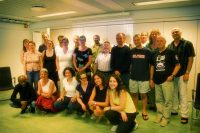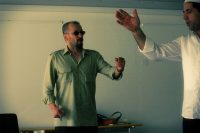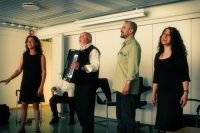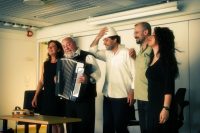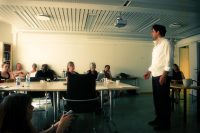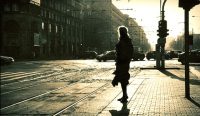Storytelling collettivo
Grazie a Tovaglia a Quadri e al suo storytelling collettivo, abbiamo rafforzato i rapporti con i partner europei che si occupano di integrazione e di storie di vita legate al mondo del lavoro.
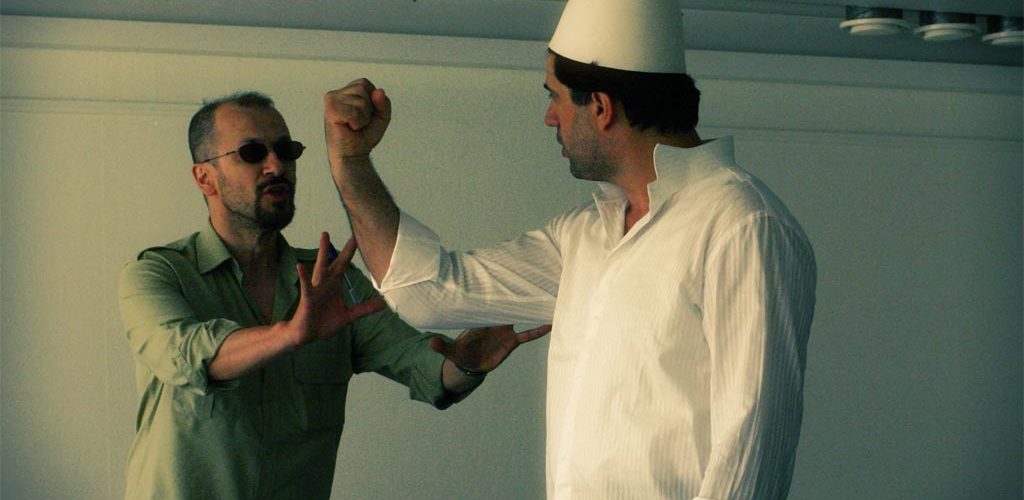
Nel 2011 è stato attivato il progetto “The Stranger“, proseguimento ideale del primo progetto di storytelling “Voices Across boundaries” (2007-2010), e abbiamo instaurato collegamenti e rapporti stretti con tante realtà che raccontano soprattutto le vite dei nuovi abitanti dell’Europa (e dell’Italia, della Toscana e del territorio aretino). Sono state prodotte performance e videoclip per i meeting di Oslo e Belfast (città alla quale abbiamo dedicato uno storytelling in musica nel 2011).
Discrimination and intersectionality:
Resisting oppression and disclosing the micro power-games
Steinar Widding researcher – www.afi.no
Intersectionality
- Classical forms of oppression such as those based on race/ethnicity, gender, religion, nationality, sexual orientation, class, species or disability do not act independently of one another.
- They interrelate creating a system of oppression that reflects the “intersection” of multiple forms of discrimination
- Example: disabled female worker 50+ from an ethnic minority
- People who fall into the bottom of the social hierarchy in terms of race or gender are more likely to receive lower wages, to be subjected to stereotypes and discriminated against.
Mechanisms of oppression
- All forms of oppression imply the devaluation of the subjectivity of the oppressed
- Belittling, stigmatization, labelling
- Hierarchies of credibility
- Talking to the hierarchy of credibility
- Talking from the hierarchy of credibility
- Marginalized groups often gain a status of being an “other”
- “Others” are virtually anyone that differs from the societal myth of an “average white male”
- “Othering” = attempting to establish a person as unacceptable
- Internalizing stereotypical societal views = negative self-evaluations = psychological oppression
Resisting oppression
- Identity politics:
- Political movements creating counter definitions (i.e. “black is beautiful”, gay pride)
- Preserving a sense of self-value and a stable self-definition not obtained from outside influences helps to overcome these oppressive societal methods of domination.
- Self-evaluation and self-definition are ways of resisting oppression. Self-awareness groups helps to preserve the self-esteem of the group that is being oppressed and help them avoid dehumanizing outside influences.
Action research (AR) and resisting oppression
- AR = research ”with” rather than ”on”
- Both reserachers and actors are actors in the investigative process, influencing the flow, interpreting the content and sharing options for action.
Creative combinations of written, oral and visual communication in AR
Examples:
- Photo novella (people’s photographic documentation of their everyday lives) to record and to reflect community members’ needs, promote dialogue, encourage action and inform policy
- Theatre and visual imagery to facilitate collective learning, expression and action
- Collectively written songs, cartoons, community meetings, community self portraits and videotape recordings
Strengthening the voices…
- Identifying oppressive mechanisms
- Exploring, challenging and oppose stereotypes
- Fighting labelling and stigmatization
- Fighting “othering”
- Joining forces across boundaries?

